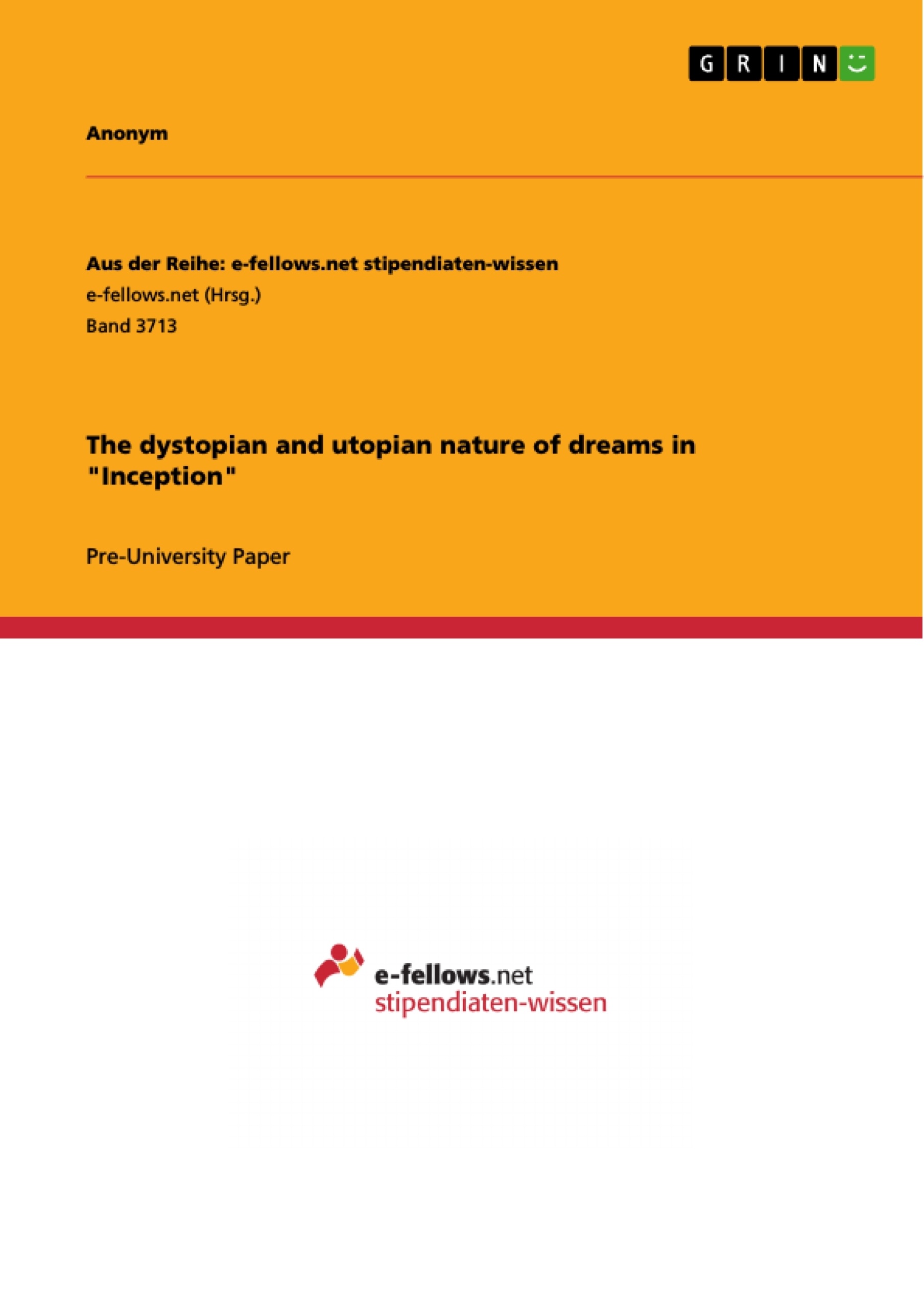With box office sales amounting to an impressive 828 million US dollars, the 2010 movie Inception, directed by Christopher Nolan, was an instant success for Warner Bros. Therefore, it is hardly surprising that it is currently ranked 69th on the list of the most successful movies of all time. However, in order to understand what distinguishes Inception from a simple blockbuster and what makes it one of the most ingenious movies of the 21st century, one has to delve deeper into its numerous layers.
The screenplay is based on two fictional preconditions. Firstly, the existence of a technology that enables the sharing of dreams and secondly, that this technology became subject to a new kind of crime known as ‘extraction’, which involves inserting oneself into someone’s dreams to gain access to hidden information without the person being aware of it. The movie’s protagonist Dom Cobb (Leonardo DiCaprio), who is a professional thief known for being the best at the dangerous art of ‘extraction’, and his team receive a tempting offer from Japanese businessman Saito. They are tasked not with stealing information from someone’s mind, but instead with planting an idea into a person’s mind, an undertaking known as ‘inception’. In return, Dom will be cleared of all his criminal charges, which would make it possible for him to return home to his children. Desperate to be reunited with them once again, he agrees to take on the challenge. Along with his team, Dom needs to convince Saito’s business competitor Robert Fischer to dissolve his father’s business empire once he is dead. Fischer is drugged by the team and together they enter the dream world. Through different dream levels, each one trying to convey a different emotional message to Fischer, the team dives ever deeper into Fischer’s subconscious in order to plant the idea of breaking up his father’s business empire into his mind.
Christopher Nolan walks a fine line between presenting a utopian or a dystopian world in his movie. The resulting ambivalence challenges viewers to make up their own mind about what they consider to be morally right and wrong. Since Inception does not foster straightforward black and white thinking, viewers are left floundering in a moral grey area. Instead of a clear demarcation between what we as human beings look upon as good and bad these two opposites begin to fade, which in turn precisely causes that complex and unsettling ambivalence. [...]
Table of Contents
- Introduction
- The Ambivalent Nature of Inception
- Research Report: Providing a Theoretical Background on some of the Key Themes in Inception
- The Mechanics of Dreaming in Inception
- Creation and Perception
- The Mechanics of Lucid Dreaming
- Shared Dreaming in Inception
- Time in Dreams - Dreamtime in Inception
- Psychoanalytical Theories on Dreams according to Freud
- The Relationship between Dreams and Waking Life
- Causality in Dreams
- The Dystopian and Utopian Nature of Dreams in Inception
- The Utopian Nature of Dreams in Inception
- The Dystopian Nature of Dreams in Inception
Objectives and Key Themes
This research report delves into the philosophical questions posed by Christopher Nolan's film "Inception", specifically exploring the interplay of utopian and dystopian elements within the dreamscapes. The report examines the film's portrayal of the dream world, its mechanisms, and the philosophical implications of the ambiguous distinction between dream and reality. The report aims to provide a deeper understanding of the film's complex themes, analyzing them through a lens of philosophical inquiry, drawing upon key thinkers like René Descartes, Robert Nozick, and Plato.
- The ambiguity of reality vs. dream
- The impact of dreams on waking life and vice versa
- The philosophical implications of dream manipulation and inception
- The ethical considerations surrounding the use of dream technology
- The potential consequences of blurring the lines between dream and reality
Chapter Summaries
The introduction explores the film's premise and success, focusing on the technology of shared dreaming and the concept of "inception". The report then examines the mechanics of dreaming in "Inception", delving into concepts like dream creation, lucid dreaming, shared dreaming, and the distorted perception of time within dreams. The third chapter explores psychoanalytic theories on dreams, drawing upon Freud's interpretations of the relationship between dreams and waking life, and the logic of dreams.
Keywords
The core themes explored in this report include dream technology, inception, dream manipulation, the ambiguity of reality, philosophical skepticism, empirical accuracy of senses, social constructivism, the allegory of the cave, and the ethical implications of dream-related technologies.
- Citar trabajo
- Anonym (Autor), 2018, The dystopian and utopian nature of dreams in "Inception", Múnich, GRIN Verlag, https://www.grin.com/document/974351




